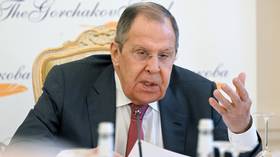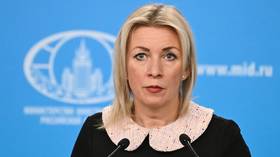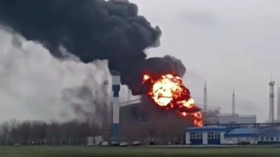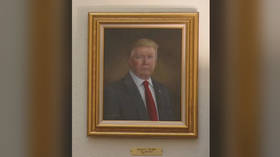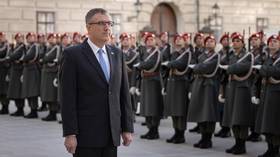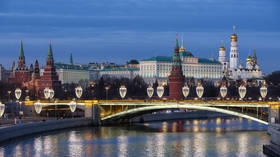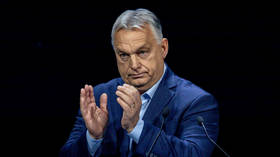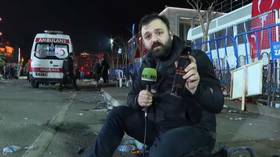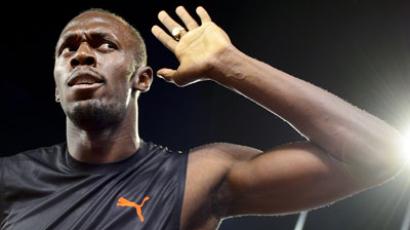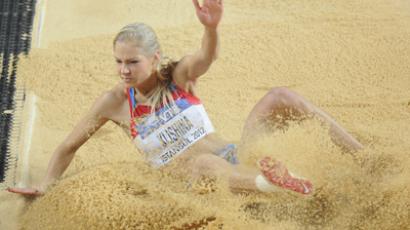First outdoor World Athletics Champs in Moscow held amid gay controversy
The XIV World Athletics Championships have kicked off in Russia’s capital for the first time. It is rated as arguably the third greatest sporting event after the Olympics and Football World Cup – both of which will also take place in Russia soon.
Overall 1,974 athletes (1,106 men and 868 women) from 206 countries have applied for competing for medals at the Moscow championships at Luzhniki sports arena. This is the record number of participants in the event.
Sport stars like ‘the fastest man on Earth’, Jamaican sprinter Usain Bolt, Russian pole-vaulting world champion Elena Isinbayeva, German Olympic and world discus champion Robert Harting, and many others are among the participants.
There will be 47 sets of medals to compete for: 24 for men and 23 for women.
The first World Athletics Championships took place in 1983. The first three championships were separated by four-year intervals. Later the meet was set to take place every two years.

The official opening on Saturday evening started with the welcoming speeches by the Russian President Vladimir Putin, President of the International Olympic Committee Jacques Rogge and the president of world athletics’ IAAF governing body, Lamine Diack.
The championships will last until August 18.
The first competition was women’s marathon staged on the banks of the Moskva River. The marathoners ran from Luzhniki to downtown Moscow, eventually passing the Kremlin. City authorities had cordoned off some of the most important landmarks for the event.

The championships are starting amidst controversy brought about
by the recently-adopted Russian law banning promotion of
homosexuality to children. The law caused quite a
stir in the international LGBT community which called for
pressure to be applied on the Russian government, while some
political
and public
figures in the West have called for a boycott of next year’s
Winter Olympic Games in Sochi.
British actor Steven Fry has dubbed the law ‘fascist’, comparing
Russia to Nazi Germany.
“[Russian President Vladimir Putin] is making scapegoats of gay people, just as Hitler did Jews,” Fry wrote in an open letter.
"At all costs Putin cannot be seen to have the approval of the civilized world,” Fry said.
Responding to a letter from the British actor, PM David Cameron said he shares the Fry's “deep concern about the abuse of gay people in Russia.” At the same time the PM has ruled out a boycott of the Sochi Winter Olympics.
Cameron tweeted that he believes prejudice can be better
challenged by attending the Sochi Winter Olympic Games rather
than boycotting them.

In the meantime, some commentators point out that the UK itself used to have a very similar law until very recently.
In 1988, British conservatives put into action Section 28 of the Local Government Act, prohibiting local authorities from promoting a gay lifestyle.
“The UK had cynical Section 28 in place until 2003, which was almost exactly the same as the law passed in Russia, which said that homosexuality should not be promoted in schools or to minors,” Ben Harris-Quinney, the Chairman of the Bow Group, UK’s oldest conservative think-tank, told RT.
Russian authorities have firmly denied all allegations that the law is anti-gay.
“This legislation is not meant to curtail the rights of
citizens from any country, whatever their proclivities. The law
is specifically targeted at propaganda to minors. But although
everyone’s rights will be maintained, we will ask visitors to
respect the laws of the country to which they have arrived,”
Russian Sports Minister Vitaly Mutko said.

‘Sportsmen would be only ones to suffer’
The International Olympic Committee has called to keep sports and politics separate.
“Boycotting Sochi 2014 would only serve to deprive the country’s athletes from fulfilling their dreams of competing at an Olympic Games, something they have dedicated a great portion of their lives to accomplish,” Emmanuelle Moreau, the Head of IOC’s Media Relations, commented to RT.
“History has shown that boycotts do not solve anything, but simply punish Olympic athletes,” Moreau added.
Campaigners for gay rights in Russia also doubt a boycott would do any good.
“The only people who would suffer because of the boycott will be sportsmen participating in this competitions, that’s why I’m against this,” gay activist Nikolay Alekseev told RT, adding that “the best solution in this case is to go and protest during the Olympic Games.”
The IOC confirms that the Russian government at its highest level
has assured the committee that the law banning the promotion of
homosexuality to minors will not in any way affect those
attending or taking part in the Sochi 2014 Winter Games.

British world affairs journalist Neil Clark thinks the gay rights issue is being deliberately over-hyped in the media.
“In Nazi Germany homosexuals were put into concentration camps
and killed in large numbers, and of course this is not happening
in Russia today. If it was, I’d be the first to boycott Russia
altogether,” he commented on Steven Fry’s words.
“What’s happened in Russia is a new law which bans promotion of homosexuality to under-18s. It’s not that I support that law. I oppose all anti-gays laws wherever they’re passed in the world. But why Steven Fry focusing on Russia?” said Clark.
“There are about 80 countries in the world where homosexuality is actually illegal. In Qatar, where the [FIFA] World Cup is going be held in 2022, you go to prison for five years if you’re a homosexual,” Clark pointed out, labeling the case as political.
“It shows double standards and it shows a kind of Russiaphobia among the Western elite. They look down at Russians and patronize them. This idea that in Russia people are racist and homophobic is nonsense, it is not true,” he concluded.



